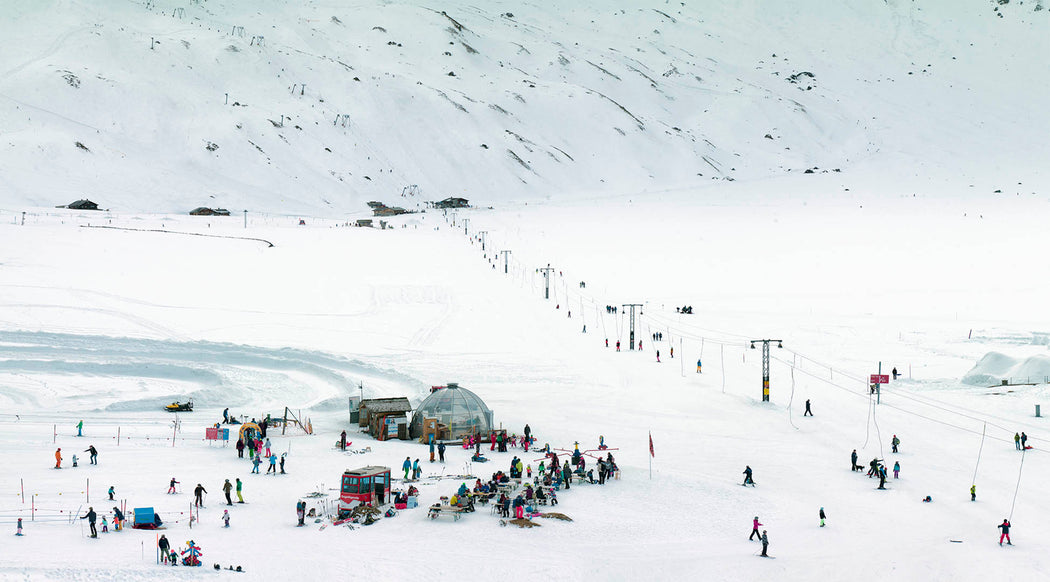
Scott Conarroe
Igloo Café, Enstligenalp by Scott Conarroe
 Toronto, ON)
Toronto, ON)
Learn about our Shipping & Returns policy.
Have a question? Read our FAQ.
- Artwork Info
- About the Artist
- About "Oberland"
-
2020
Pigment print on archival paper flush mounted to Aluminum Composite Panel
From the series "Oberland"
Signed, titled, dated, and editioned, au mount verso
Edition of 10 + 2 APs
Unframed -
Scott Conarroe's large-format photos evoke romantic pictorial traditions and locate the present within a sweep of history.
Conarroe has an MFA from the Nova Scotia College of Art and Design. He has been an artist-in-residence at Light Work (US), Villa Sträuli (CH), and FLACC (BE), and a Canadian Armed Forces Civilian Artist in the arctic. He has received numerous awards including grants from the Canada Council for the Arts and a Guggenheim Fellowship. His books include By Rail and By Sea (Black Dog Publishing, 2014) and The Great Eastern (The Velvet Cell, 2019). His works are in numerous collections including the National Gallery of Canada, the Carnegie Museum of Art, and Stadt Zürich. Conarroe lives in Bern, Switzerland.
Read our 2018 interview with Scott Conarroe HERE. -
“Oberland” is a suite of winterscapes taken from the Berner Oberland. These Alps lie west of Switzerland's geographical middle, north of the Rhone watershed, and south and east from the federal-not-capital city of Bern. Sherlock Holmes fell to his death over Reichenbach Falls there. Thomas Cook took the first international package tour to its Jungfrau Glacier. Some call it the birthplace of skiing, although archeological evidence indicates that people have slid on planks for millennia. Its 210 lifts fan out across 100 kilometres. It is a substantial winter region kept low-key by dispersal.
While perusing discussions of winterscapes, Conarroe found this passage in a text on structuralism: “When a European gazes at a snowscape and sees only snow, an Inuit, with over fifty words for snow sees a very different landscape” (John Storey, 1993). Europeans' conception of snow has been radically understated. English ski parlance alone has a dozen terms for fresh, fluffy snow. Beyond those are regionalisms, the jargons of other fields, and varieties of snow that are not fresh and fluffy.
“Oberland” focuses on the latter category. Powder days are for skiing, so Conarroe made these photos on hardpack, crud and a couple of dumps that were great yesterday but got sticky overnight. Its scenes have low Norman Rockwell stakes and Breughelesque proportions that diminish even small dramas. Figures in these images articulate scale and depth rather than evoke narratives. On screens or in publication, the ‘white’ that fills each frame may be reduced to very pale tones. The prints, however, are intricate with delicate Agnes Martin matrices. Their esses, lines, and bulging sideslips reveal distinct exhilarations and complicate notions of blankness. They illustrate structure as well as facade. It's a fitting metaphor for a photograph's balance of visual depth and physical surface.


